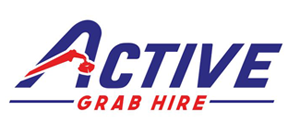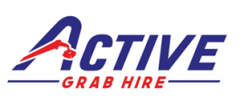Muckaway lorries, also known as tipper lorries or grab lorries, are an essential part of the construction and waste management industries. These vehicles are designed to remove large quantities of waste material from construction sites, landscaping projects, and other similar locations. However, despite their versatility and capacity, there are certain types of waste that muck away lorries cannot or should not carry. This article explores what a muck away lorry cannot take away and why, highlighting the importance of proper waste segregation and disposal.
Hazardous Materials
One of the primary categories of waste that muck away lorries cannot take away is hazardous materials. Hazardous waste includes substances that are dangerous to human health or the environment. This category covers a wide range of materials, including:
- Asbestos: Due to its carcinogenic properties, asbestos requires specialised handling and disposal. Muck away lorries are not equipped to manage the risks associated with asbestos removal.
- Chemicals: This includes industrial chemicals, solvents, and pesticides. These substances can be highly toxic and may require specialised containers and handling procedures.
- Batteries: Batteries contain heavy metals and corrosive substances that can be harmful if not disposed of correctly.
- Medical Waste: Items such as used syringes, bandages, and pharmaceuticals fall under this category. Medical waste can pose significant health risks and must be disposed of through specialised services.
- Flammable Materials: Items like petrol, diesel, and other flammable liquids pose a fire risk and are not suitable for transport in a muck away lorry.
Electrical Equipment
Electrical waste, often referred to as WEEE (Waste Electrical and Electronic Equipment), is another category that muck away lorries typically do not handle. This includes:
- Household Appliances: Items such as refrigerators, washing machines, and microwaves contain components that require special processing and recycling.
- Electronic Devices: Computers, televisions, and mobile phones fall into this category. These items often contain hazardous substances like lead, mercury, and cadmium, which need to be managed separately.
Liquid Waste
Muck away lorries are designed to transport solid or semi-solid materials. Liquid waste presents several challenges for these vehicles:
- Sewage: Raw sewage and other forms of liquid waste require tankers specifically designed for liquid transport and treatment.
- Industrial Liquids: Oils, greases, and other industrial liquids need containment that muck away lorries cannot provide.
Contaminated Soil
While muck away lorries are commonly used to transport soil and rubble from construction sites, they cannot take away contaminated soil without proper assessment and clearance. Contaminated soil contains pollutants or hazardous substances that require specialised disposal methods to prevent environmental harm.
Biological Waste
Biological waste, which includes animal carcasses and by-products, cannot be transported by muck away lorries. This type of waste requires specialised handling due to the potential for disease transmission and odour issues. Disposal of biological waste is typically managed by agricultural or veterinary waste services.
Radioactive Materials
Radioactive waste is another type of material that muck away lorries are not equipped to handle. This category includes items contaminated with radioactive substances, which require highly specialised handling, transport, and disposal to ensure safety and compliance with regulatory standards.
Recyclable Materials
While muck away lorries can transport construction waste, they are not always the best option for recyclable materials. Recycling centres prefer segregated waste streams to maximise recycling efficiency. Materials such as:
- Metals: Separate collection of metals allows for easier recycling and reduces contamination.
- Glass: Intact glass can be recycled more efficiently when separated from other waste.
- Paper and Cardboard: These materials should be kept dry and uncontaminated to facilitate recycling.
Importance of Proper Waste Segregation
Proper waste segregation is crucial for several reasons:
- Environmental Protection: Segregating hazardous and non-hazardous waste helps protect the environment from contamination and pollution.
- Legal Compliance: Adhering to waste disposal regulations ensures compliance with local and national laws, avoiding potential fines and legal issues.
- Resource Efficiency: Effective segregation enables better recycling and resource recovery, reducing the overall environmental impact.
- Health and Safety: Proper handling and disposal of hazardous materials protect the health and safety of workers and the public.
Conclusion
Muck away lorries play a vital role in managing waste from construction and landscaping projects. However, their use is limited to certain types of materials. Hazardous waste, electrical equipment, liquid waste, contaminated soil, biological waste, radioactive materials, and certain recyclables cannot be transported by muck away lorries due to the specific handling and disposal requirements these materials entail.
Proper waste segregation and adherence to disposal regulations are essential for ensuring environmental protection, legal compliance, and public health and safety. By understanding the limitations of muck away lorries and ensuring the correct disposal of all waste types, we can contribute to more sustainable and responsible waste management practices.

